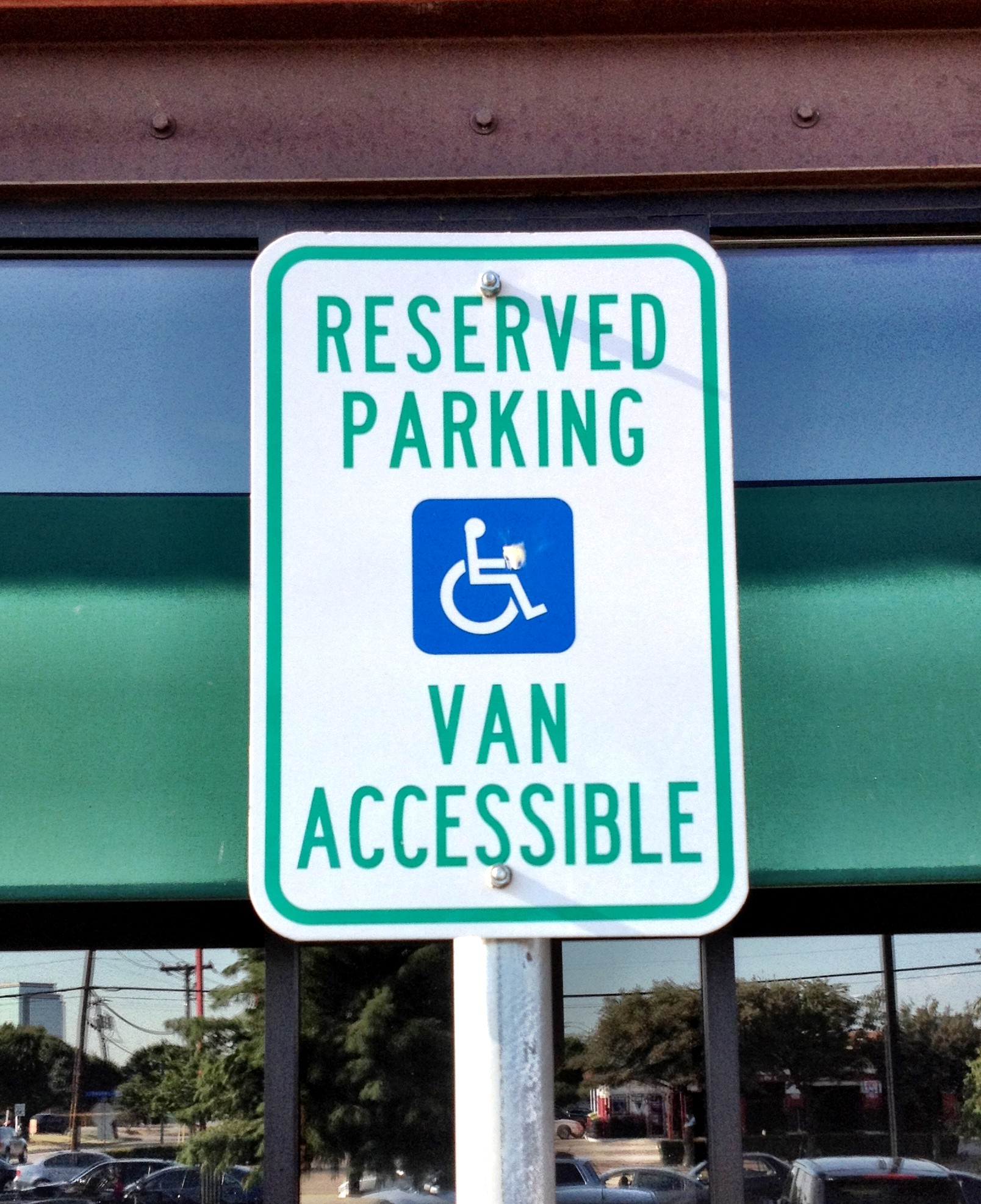 In late July two lawsuits were filed in the Northern District of Texas that make a radical new claim under the ADA. The plaintiff claims that store owners violated the ADA by failing to keep those without disabilities from parking in accessible parking spaces. Just how the property owner is supposed to keep accessible parking free from poaching isn’t entirely clear. There is a suggestion that the owner should call the police, but the same lawyers also sued the City of Burleson claiming that was violating the ADA by failing to enforce accessible parking laws. If the owner calls the police and they don’t come has he done enough?
In late July two lawsuits were filed in the Northern District of Texas that make a radical new claim under the ADA. The plaintiff claims that store owners violated the ADA by failing to keep those without disabilities from parking in accessible parking spaces. Just how the property owner is supposed to keep accessible parking free from poaching isn’t entirely clear. There is a suggestion that the owner should call the police, but the same lawyers also sued the City of Burleson claiming that was violating the ADA by failing to enforce accessible parking laws. If the owner calls the police and they don’t come has he done enough?
Also left unanswered is question of how much personal risk the owner or its employees are supposed to undertake in the cause of disability rights. Short of a polite request to the authorities there isn’t much an owner can do about illegal parking that doesn’t involve a personal confrontation with the vehicle owner. We already know what kind of person without a disability parks in an accessible spot. A jerk. Confronting jerks is unpleasant and can be dangerous. It’s a job for the police, not the teenager behind the counter a the convenience store.
Another question that the plaintiffs have clearly not considered is how the owner is supposed to know that the person parked in the accessible spot is not disabled. The ADA protects everyone with disabilities, including those who do not have state issued hang tags or license plates. Even mobility disabilities may not be immediately obvious. Individuals who can walk twenty steps may be disabled because they cannot walk a hundred. On the flip side, a person without any disability who has a hang tag for a friend or relative really isn’t entitled to use accessible parking if the disabled person isn’t there. Lawyers and the courts don’t always agree on what constitutes a disability, so it seems a little unfair to put the burden of making that decision on a grocery store employee.
That’s assuming, of course, that anyone can even see that there is a violation. In many cases accessible parking is not visible to any employee of the facility it services. Does the ADA require that the owner not only create and properly mark accessible spaces, but also monitor them for misuse by those who are only morally handicapped?
The answer to all these questions is no. The original Accessibility Guidelines and more recent Accessibility Standards were created in part to create objective criteria for what constitutes an ADA violation. You put the parking places where they should be, properly laid out and marked, and you have done what the law requires. The new lawsuits create a completely subjective standard. They assert that the property owner should somehow mostly keep the accessible parking spaces free of poachers, with no clear guideline about how much private enforcement is enough, or how the courts could measure it. Subjective standards are good for only one class of people, lawyers. A subjective standard is merely a guarantee of endless litigation because neither the litigants nor the courts can be sure what is required.
These cases seem to advance a brand new legal theory, but the case law we have indicates pretty clearly that apart from the practical difficulties they are simply wrong on the law. Plaintiffs have claimed in the past that property owners violated the ADA because they failed to put up signs warning that unauthorized vehicles might be towed. While such signs may be permitted or required by state or local law, they are not required by the Accessibility Standards and so courts have rejected these lawsuits. A property owner must do what the Standards (or earlier Guidelines) require, but need not do more, at least with respect to accessible parking. The recently filed lawsuits were carefully pled to overcome the obvious problems they raise, but they need and deserve rapid dismissal because they simply fail to state any cognizable cause of action.

